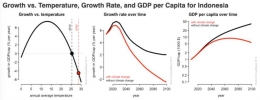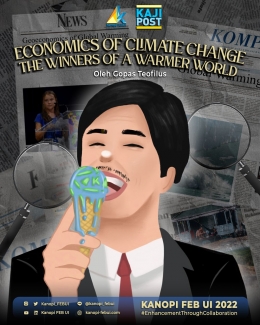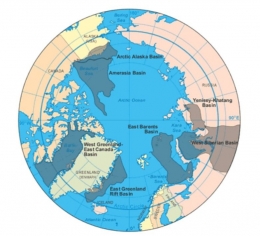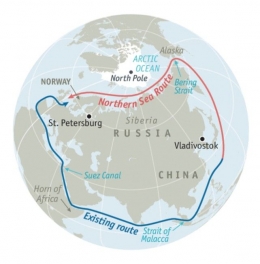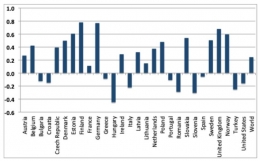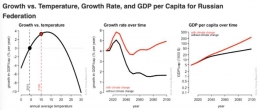From this set of dilemmas, it's best to deduce that the future of global warming will be dependent on a game of self-interest. The world might one day condemn certain countries from capitalising on global warming, but should they disregard the potential advancements of impoverished Arctic communities? If the climate movement turns successful, should we let Arctic nations bear the loss of what might have been their path to prosperity? Are there economies that we should 'sacrifice' for an environmentally secure world? And, if so, whose economies should we actually 'sacrifice' first?
A Warmer, Complicated World
Greta's ultimatum at the U.N.'s Climate Action Summit might have lingered as a mere echo in the consciousness of world leaders. In a world where winners can exist in a warmer world, it can be hard to prove to certain governments that they're betraying and failing their nation's future.
Putin's remark to Greta could explain why the climate movement is a fruitless endeavour: "The world is a complex and different place". Yet, at the same time, it can be wielded as a reason for the movement's importance: while climate change may economically benefit the Arctic states, it would still damage the rest of the globe.
To answer the question on whose economy should be prioritised through the course of global warming, a simple utilitarian approach of achieving the greatest good while creating the least amount of harm might be best. Or perhaps, in an extremely ideal scenario, every state's self-interest for their economy could be put aside, and every invisible hand in this climate dilemma should not wrestle, but work together to create a fair, impactful consensus.
---
By Gopas Teofilus Silalahi | Ilmu Ekonomi 2021 | Staff Divisi Kajian Kanopi 2022
---
Bibliography
Bekkers, E., Francois, J. F., & Romagosa, H. R. (2015). Melting Ice Caps and the Economic Impact of Opening the Northern Sea Route. The Economic Journal, 128(610), 1095--1127. https://doi.org/https://doi.org/10.1111/ecoj.12460
Brien, K. O., Eriksen, S. H., Sygna, L., & Naess, L. O. (2006). Questioning Complacency: Climate Change Impacts, Vulnerability, and Adaptation in Norway. AMBIO A Journal of the Human Environment, 35, 50--6. https://doi.org/10.1579/0044-7447(2006)35[50:QCCCIV]2.0.CO;2
Bove, T. (2021, September 2). The New Economy of a Warming Arctic. Earth.org. Retrieved April 10, 2022, from https://earth.org/new-economy-of-a-warming-arctic/
Buis, A. (2019, June 19). A Degree of Concern: Why Global Temperatures Matter. NASA. Retrieved April 7, 2022, from https://climate.nasa.gov/news/2865/a-degree-of-concern-why-global-temperatures-matter/








